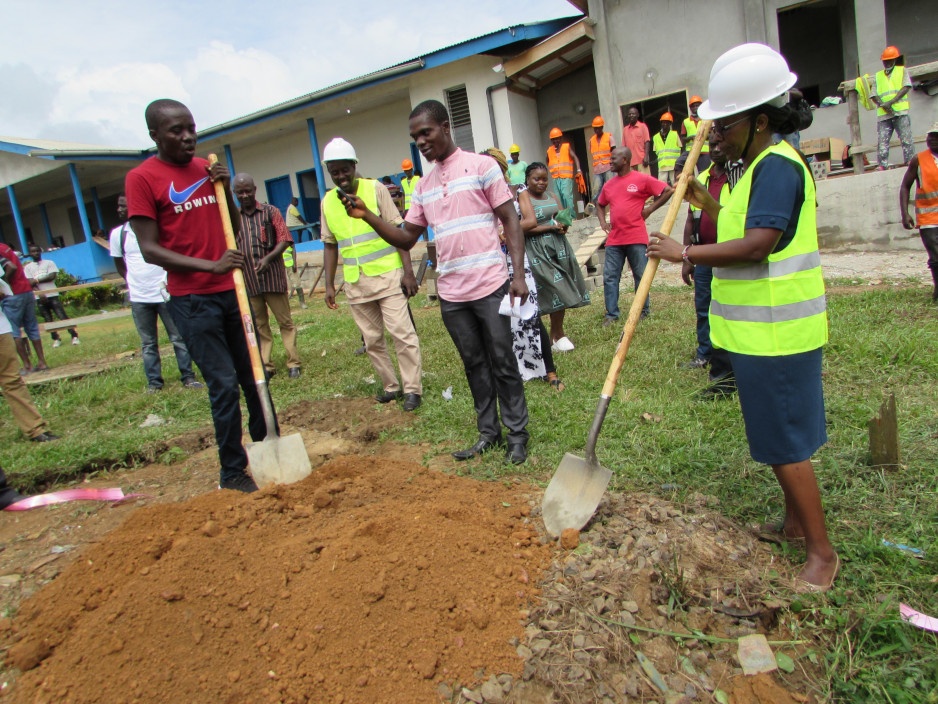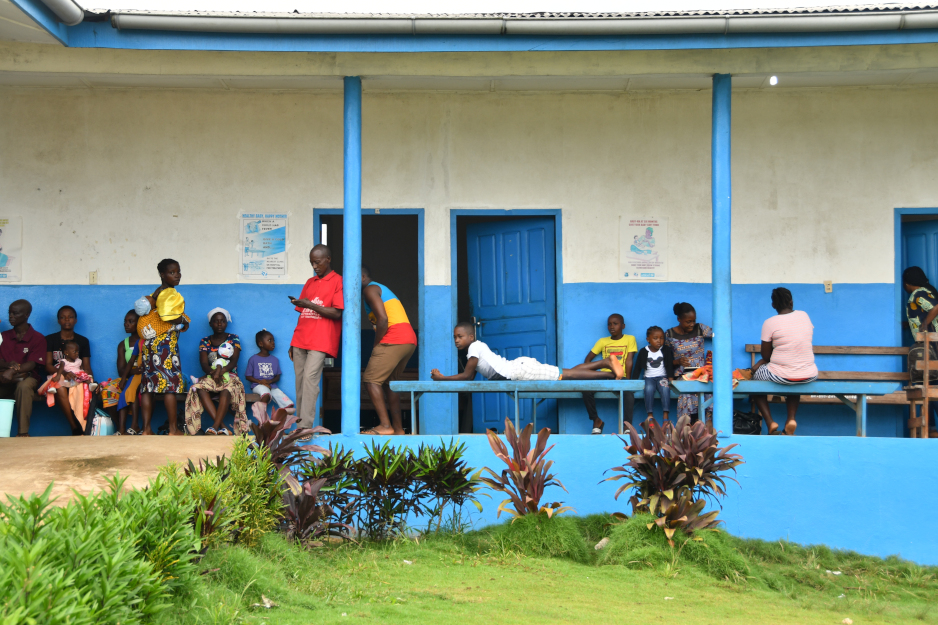PIH Breaks Ground on New ER Facility at Liberia Health Center


Construction has begun on a new emergency care facility that will dramatically improve care and services at Pleebo Health Center in Liberia—so much so, Joseph Lusaka said, that it will feel like a long-held, angry stare finally is looking elsewhere.
“We are committed to giving patients the health care they need with the resources we have,” said Lusaka, PIH’s senior physician assistant at Pleebo. “But the challenges of inadequate beds for people with acute conditions; a lack of gender-friendly spaces; not enough space for standard protocols, quick referrals in emergency cases, or prevention of infection during sterilization procedures; and a shortage of patient-examination rooms, always have been glaring at us.”
Construction of Pleebo’s new emergency facility is making that glare go away.
In collaboration with Liberia’s Ministry of Health and Maryland County Health Team, PIH recently broke ground on the new emergency care block at the PIH-supported Pleebo Health Center. When completed, the facility will expand Pleebo’s capacity to provide health services and treatment in a wide range of areas, including hypertension, diabetes, hepatitis B, tuberculosis, HIV, maternal health and child health, in addition to emergency needs.
PIH previously renovated Pleebo Health Center in 2015. The health center serves Pleebo District, which is the most populated in Maryland County and home to more than 55,000 people in southeastern Liberia. Because Pleebo also is a regional commercial center, people from the neighbouring counties of River Gee and Grand Kru, and from the neighbouring country of Ivory Coast, also visit Pleebo frequently for health care.
Lusaka, affectionately called Joe, said the health center offers primary care in areas including maternal, newborn, and child health; adolescent reproductive health; mental health; and communicable and non-communicable diseases, while seeing about 200 patients and 20 emergency cases every day.

More than Emergency Care
Providing all of those services has been challenging without a dedicated emergency facility.
Lusaka said he and his team have been using a makeshift emergency ward to accommodate patients brought in with immediate needs such as injuries from accidents; severe hypertension; and acute respiratory infections, requiring oxygen. All of those patients need safe, high-quality spaces to receive lifesaving stabilization before referral or surgery.
The new emergency facility is designed to meet those needs.
When completed, the facility will include five beds for general admission patients, a trauma bay, an isolation room, utility rooms, storage areas, bathrooms, a reception and triage space, an inpatient ward with eight beds—four for males and four for females—an expanded outpatient consultation area, and a non-communicable disease clinic with three consultation rooms, a waiting area and storage.
Additionally, the new facility will provide outpatient services, therapy for palliative care patients, and emergency care for children, people with acute conditions, and people with emergency surgical needs such as trauma care.
All of those services will benefit patients from more than 30 vulnerable communities in Maryland County.
“When completed, the new ER block will further enable Pleebo Health Center to have adequate space, equipment and capabilities, such as ultrasounds and electrocardiograms, to improve treatment of ‘our bosses’ tremendously,” Lusaka said, using his team’s term for Pleebo patients.
Wellington Kyane, mayor of Pleebo District, attended the recent groundbreaking ceremony along with the county health team and expressed his commitment to smooth construction of the new facility.
“Today’s groundbreaking demonstrates PIH and the government of Liberia’s efforts to strengthen health systems, through the provision of ancillary spaces, administrative spaces, and consultation spaces—including restroom facilities, a kitchen, storage, waiting areas and central waste management—to give long-term patient care to the people of Liberia,” Kyane said.
Article originally posted on pih.org



